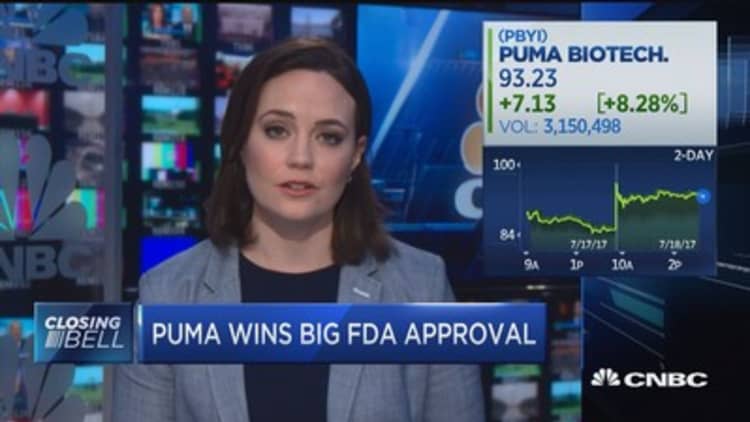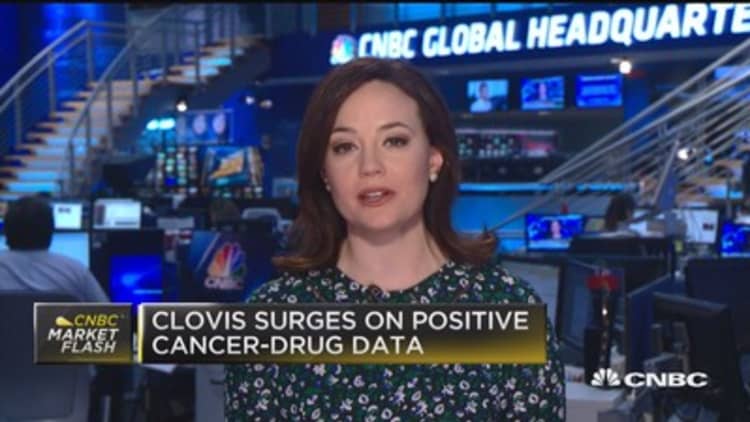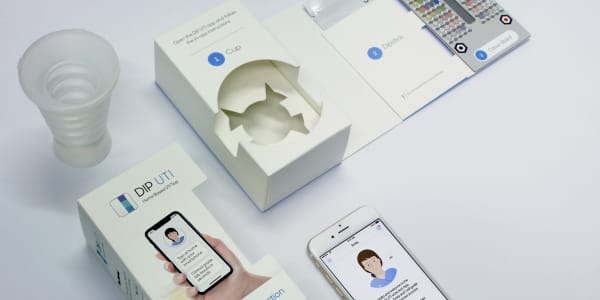Verily, the life sciences arm of Google's parent company Alphabet, has invested in Freenome, an ambitious start-up that's building technology to detect early-stage cancer, and built a dedicated lab for the start-up.
Verily invested in Freenome as part of its most recent round of financing, which totaled $65 million, in March 2017, a person familiar with the investment tells CNBC. This was separate from an investment made by Alphabet's venture arm, GV (formerly Google Ventures), which has been previously reported.
"We are providing office space to Freenome in order to foster collaboration between the two companies," a Verily spokesperson confirmed. The companies did not comment on the investment.
The funding represents a deviation in strategy for Verily, which typically forms partnerships with life sciences companies to jointly develop companies or products.
To sweeten the deal, Verily built Freenome's clinical team a lab to their specifications, the person said. Freenome's team, which amounts to about 40 people, has now moved in.
The lab is the first on Verily's South San Francisco premises, the person said, although Verily said that there are other labs on campus as well.
Freenome is using machine learning to root out biological signals of cancer from DNA fragments in the blood. It's most recent funding round was led by Andreessen Horowitz with participation from GV, Alphabet's venture unit, among other investors.

If Freenome is successful, it could represent an acquisition target for Verily and would represent a boon to its bottom line. The company's goal is to become a standard of care, with even healthy people screened on a regular basis for signs of cancer.
Freenome competes with Grail, a start-up led by former Google executive Jeff Huber that also raised financing from GV. Grail's funding total is hovering around $1 billion, an astronomical sum for a diagnostics start-up that will be used in part to fund one of the largest clinical trials in history.
Such technologies face a range of regulatory and scientific hurdles. They are looking for a tiny resolution of tumor DNA in the blood, which is easy to miss. It's also unclear whether they will add costs to the already-overburdened health system through false positive results.
But if it works, the idea is that some forms of cancer will be detected in its nascent stages -- and with an affordable test -- so that it's far easier to treat.
"To put it generally, we are looking for cancers where finding something at the right time can make a difference between life and death," Freenome CEO Gabriel Otte previously told Fast Company.
WATCH: Clovis surges on positive cancer-drug data






